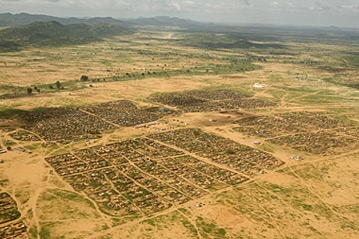Education for Sudanese children in eastern Chad
Education for Sudanese children in eastern Chad

I. Background
The four-year conflict in the Darfur region of western Sudan has displaced more than 2 million people in Darfur itself and driven over 230,000 Sudanese refugees into 12 camps in eastern Chad.
In the camps, 62,500 out of the over 73,300 school-aged children are enrolled in primary school. All classes are taught in Arabic and follow the Sudanese curriculum, but the Sudanese government has not recognized it yet. Possibilities of studying French and following the Chadian curriculum are under discussion.
II. Challenges
Most children hardly attended school while in Darfur. On paper, school enrolment in the camps in eastern Chad is quite high, but attendance fluctuates. Boys and young men face different problems - they can easily be recruited by various armed groups operating in the area. Girls' attendance is less regular, especially after marriage, which usually occurs when they are 12 or 13 years old. Some are overwhelmed by household chores while others are hired by Chadian families and have to drop out of school. Trauma from the conflict affects many children's attendance and ability to learn.
Salaries for teachers are low - about US$50 a month - and qualified ones are hard to find. The camp schools lack furniture, books and stationary. Although education is free in the camps, most parents cannot afford to pay for uniforms.
In addition, the absence of a valid secondary education programme limits options for the pupils' future and their access to refugee scholarships.
III. UNHCR intervention
UNHCR pays for the teachers' salaries in all camps and for the maintenance of the schools through NGO partners, some of whom also provide uniforms to needy students. UNICEF is responsible for providing materials such as books, notepads and stationary. It also supports, with UNHCR, several NGOs to train all the teachers on how to organize and prepare classes. The Chadian Ministry of Education oversees the quality of the programmes and the exams. The system was assessed for improvement in August 2007 by UNHCR, UNICEF and the Ministry.
UNHCR is preparing an official request, through the Ministry, to the Sudanese ambassador in Chad to recognize the curriculum in the refugee schools. The agency is also preparing a pilot project to have secondary education programmes in the camps through radio classes via the community radio station (Internews). Ideally it could lead to a larger project that includes a radio station dedicated to education (primary and secondary) and that will benefit refugees and the local population, including internally displaced Chadians.
